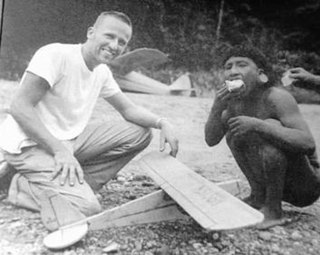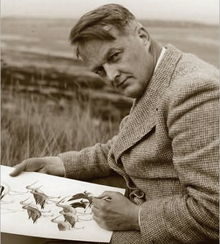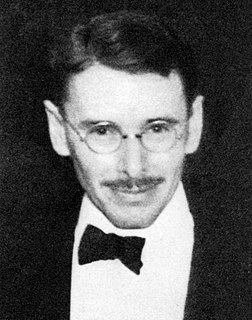A Quote by William Morris Hunt
Most of us live for the critic, and he lives on us. He doesn't sacrifice himself. He gets so much a line for writing a criticism. If the birds should read the newspapers, they would all take to changing their notes. The parrots would exchange with the nightingales, and what a farce it would be!
Related Quotes
To describe love-making is immoral and immodest; you know it is. To describe it as it really is, or would appear to you and me as lookers-on, would be to describe the most dreary farce, to chronicle the most tautological twaddle. To take note of sighs, hand-squeezes, looks at the moon, and so forth--does this business become our dignity as historians? Come away from those foolish young people--they don't want us; and dreary as their farce is, and tautological as their twaddle, you may be sure it amuses them, and that they are happy enough without us.
If God would grant us the vision, the word sacrifice would disappear from our lips and thoughts; we would hate the things that seem now so dear to us; our lives would suddenly be too short, we would despise time-robbing distractions and charge the enemy with all our energies in the name of Christ. May God help us ourselves by the eternities that separate the Aucas from a Comprehension of Christmas and Him, who, though he was rich, yet for our sakes became poor so that we might, through his poverty, be made rich.
What Orwell feared were those who would ban books. What Huxley feared was that there would be no reason to ban a book, for there would be no one who wanted to read one. Orwell feared those who would deprive us of information. Huxley feared those who would give us so much that we would be reduced to passivity and egoism. Orwell feared that the truth would be concealed from us. Huxley feared the truth would be drowned in a sea of irrelevance.
We feel an affinity with a certain thinker because we agree with him; or because he shows us what we were already thinking; or because he shows us in a more articulate form what we were already thinking; or because he shows us what we were on the point of thinking; or what we would sooner or later have thought; or what we would have thought much later if we hadn’t read it now; or what we would have been likely to think but never would have thought if we hadn’t read it now; or what we would have liked to think but never would have thought if we hadn’t read it now.
Although birds coexist with us on this eroded planet, they live independently of us with a self-sufficiency that is almost a rebuke. In the world of birds a symposium on the purpose of life would be inconceivable. They do not need it. We are not that self-reliant. We are the ones who have lost our way.
His gaze wandered from the windows to the stars, as if he would have read in them something that was hidden from him. Many of us would, if we could; but none of us so much as know our letters in the stars yet - or seem likely to do it, in this state of existence - and few languages can be read until their alphabets are mastered.
It comforts me to think that if we are created beings, the thing that created us would have to be greater than us, so much greater, in fact, that we would not be able to understand it. It would have to be greater than the facts of our reality, and so it would seem to us, looking out from within our reality that it would contradict reason. But reason itself would suggest it would have to be greater than reality, or it would not be reasonable.
'A Fair Maiden' existed in notes and sketches for perhaps a year. When I traveled, I would take along with me my folder of notes - 'ideas for stories.' Eventually, I began to write it and wrote it fairly swiftly - in perhaps two months of fairly intense writing and rewriting. Most of my time writing is really re-writing.
Harry Potter is one boy in a long line of mythical heroes who have reminded the human race that we are so much more than we think we are, so much more powerful than we seem to know. Jesus said that we would someday do even greater works than He; should we not take Him at His word? And should not 'someday' be today? It's time for us to start working miracles, if indeed we have the capacity within us to do so.








































